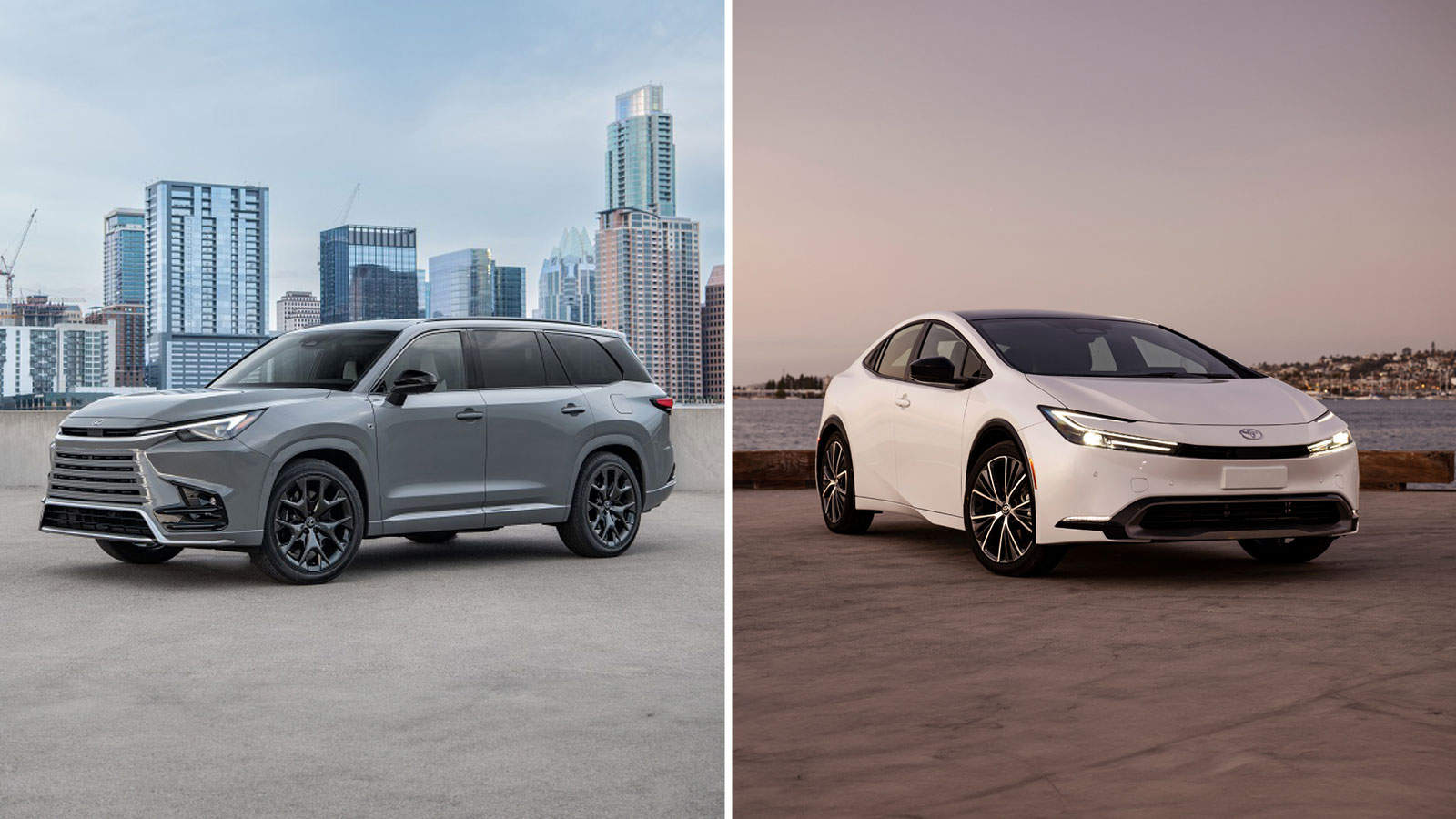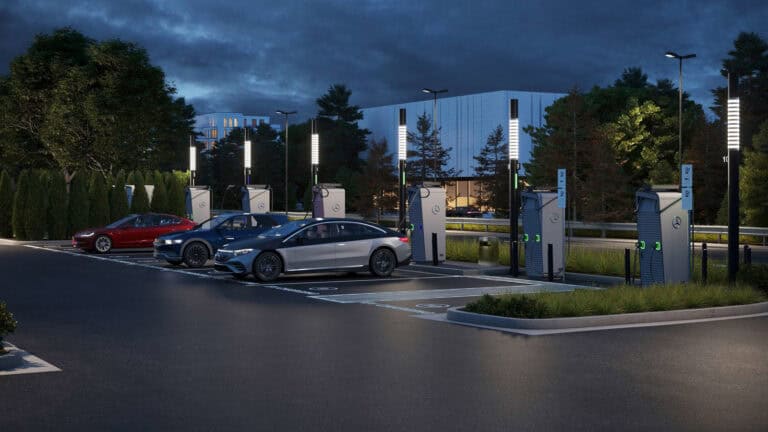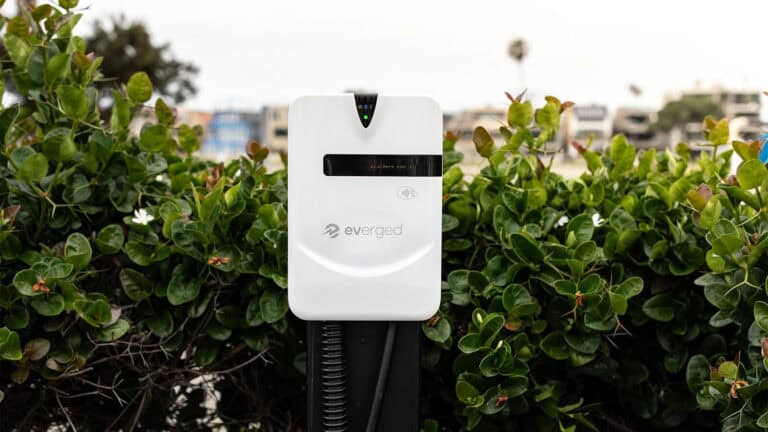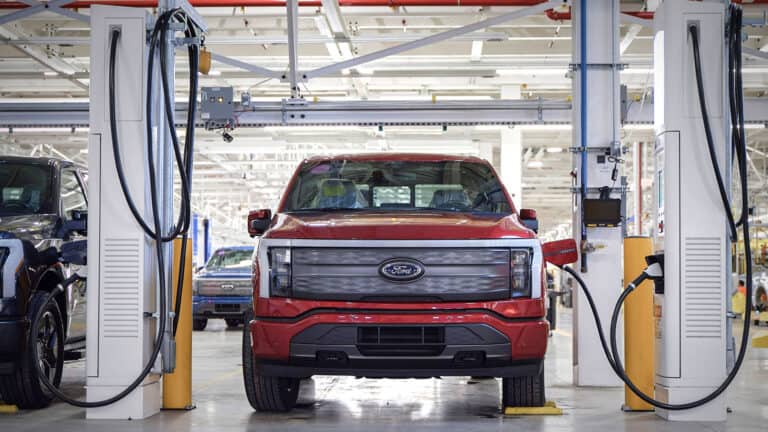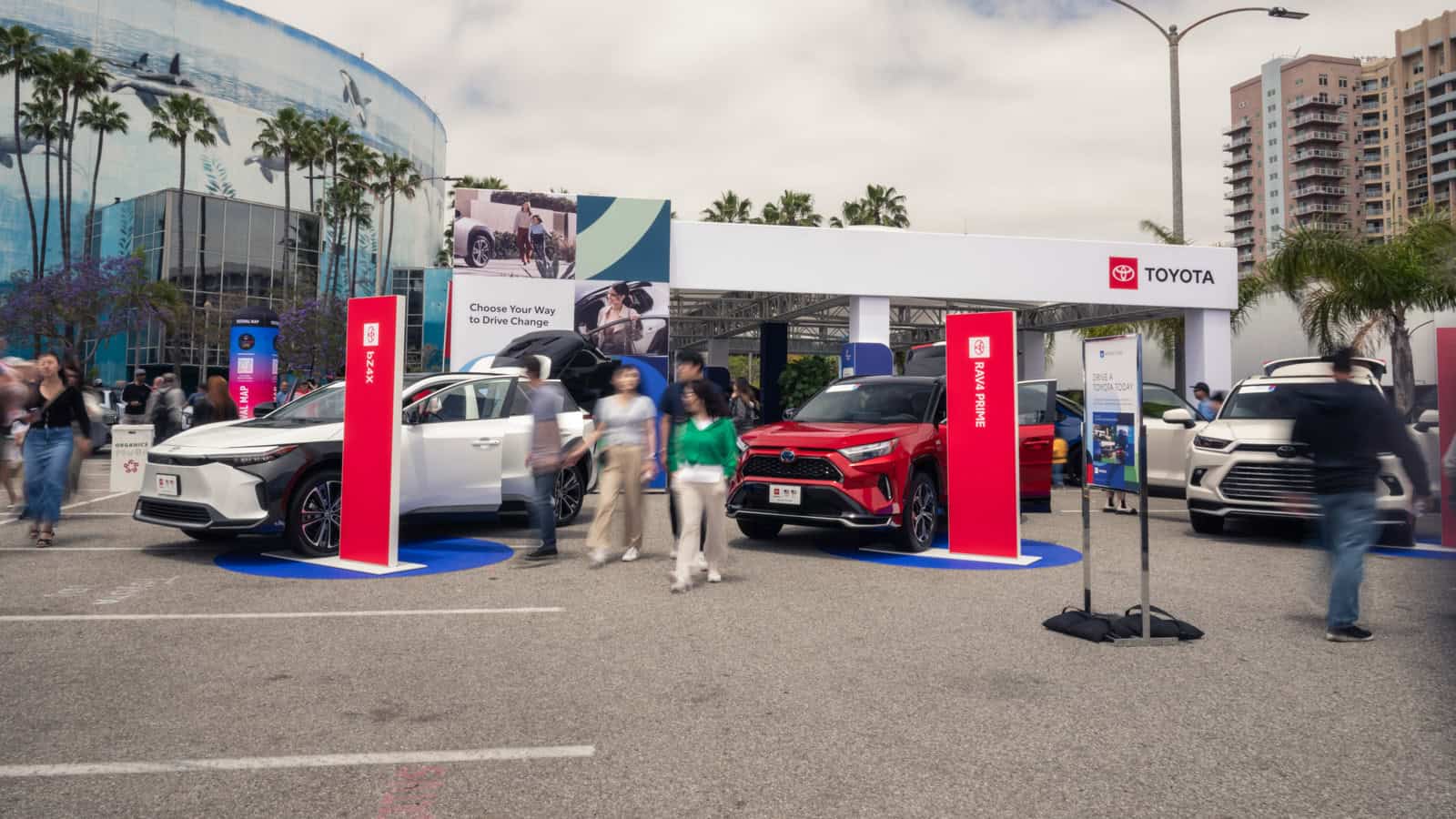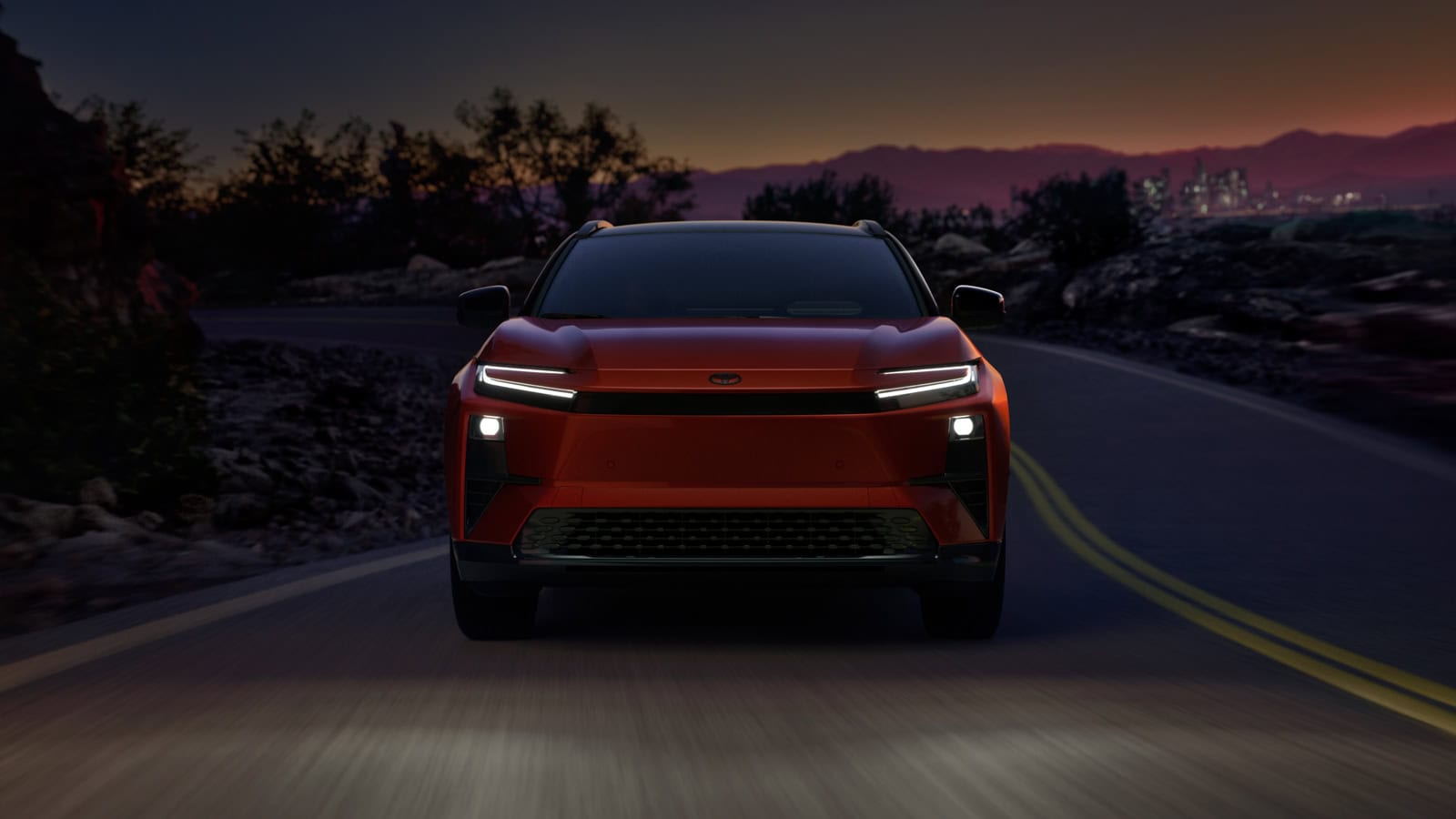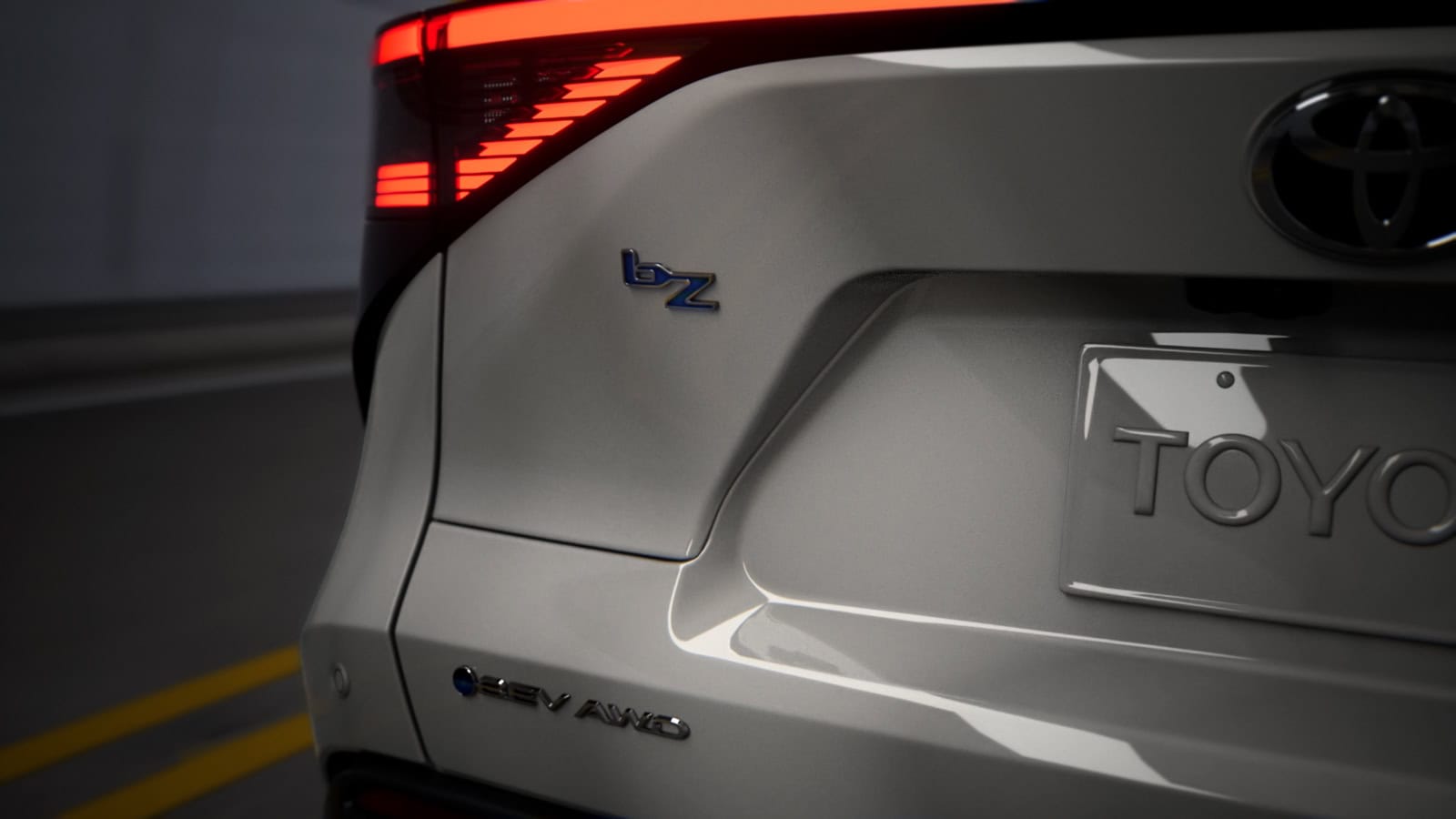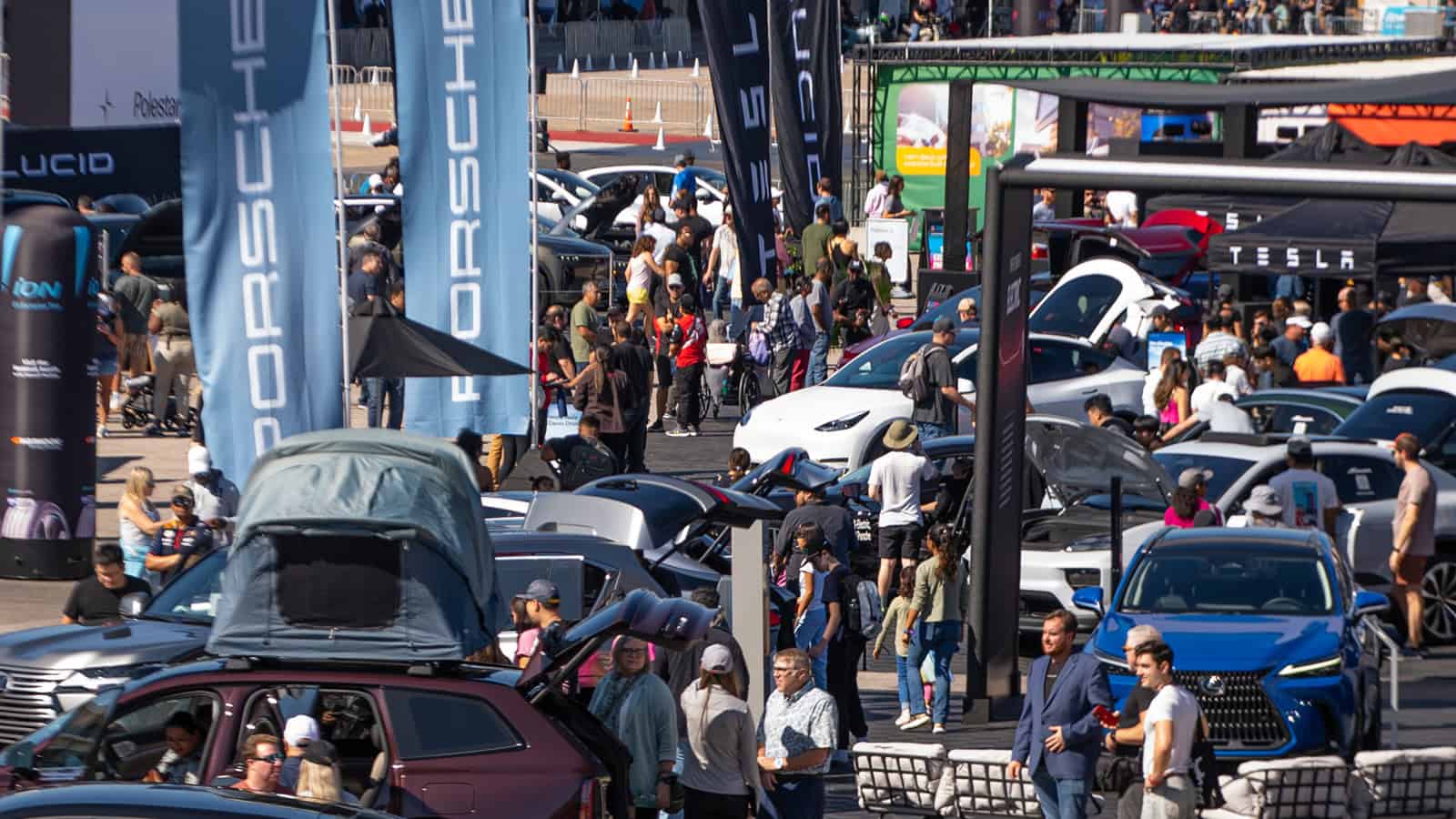- Toyota will take over its EV battery joint venture with Panasonic and convert it into a wholly owned subsidiary.
- Toyota’s electrified vehicle sales (battery, hybrids, plug-ins, and fuel cells) surged 30%, making up nearly one-third of the total U.S. sales volume of over 2 million vehicles in 2023.
- The company has 26 electrified vehicle options available, the most among any OEM, with a large selection of Toyota hybrid cars.
Toyota is making big moves toward electrification in the automotive industry, as well as creating significant controversy. Most notably, it reported year-end 2023 U.S. sales of 2,248,477 vehicles, an impressive increase of 6.6% volume. Toyota hybrid cars continue to show great popularity so far in 2024.
ADVERTISEMENT
Toyota North America Remains a Stalwart in U.S. Sales
Toyota has been the No. 1 seller of passenger vehicles in North America for 20 of the last 21 years. Toyota’s electrified vehicle sales represented 29.2% of total sales volume in 2023, proving an astounding growth in electrified vehicles.
Panasonic EV Battery Takeover
On March 5, 2024, Toyota Motor said it would take over its EV battery joint venture with Panasonic Holdings, Japan’s Primearth EV Energy (PEVE). Toyota’s plan is to convert it into a wholly owned subsidiary, substantially strengthening its capabilities in mass-producing electric vehicle batteries and supporting new developments in advanced battery technology.
Primearth EV Energy is a manufacturer of prismatic nickel–metal hydride (Ni-MH) and lithium-ion (Li-ion) battery packs for hybrid electric vehicles (HEVs). Toyota said it plans for PEVE to begin producing batteries for battery electric vehicles (BEVs) and plug-in hybrids (PHEVs) in addition to HEV batteries.
Toyota’s Controversial Akio Toyoda
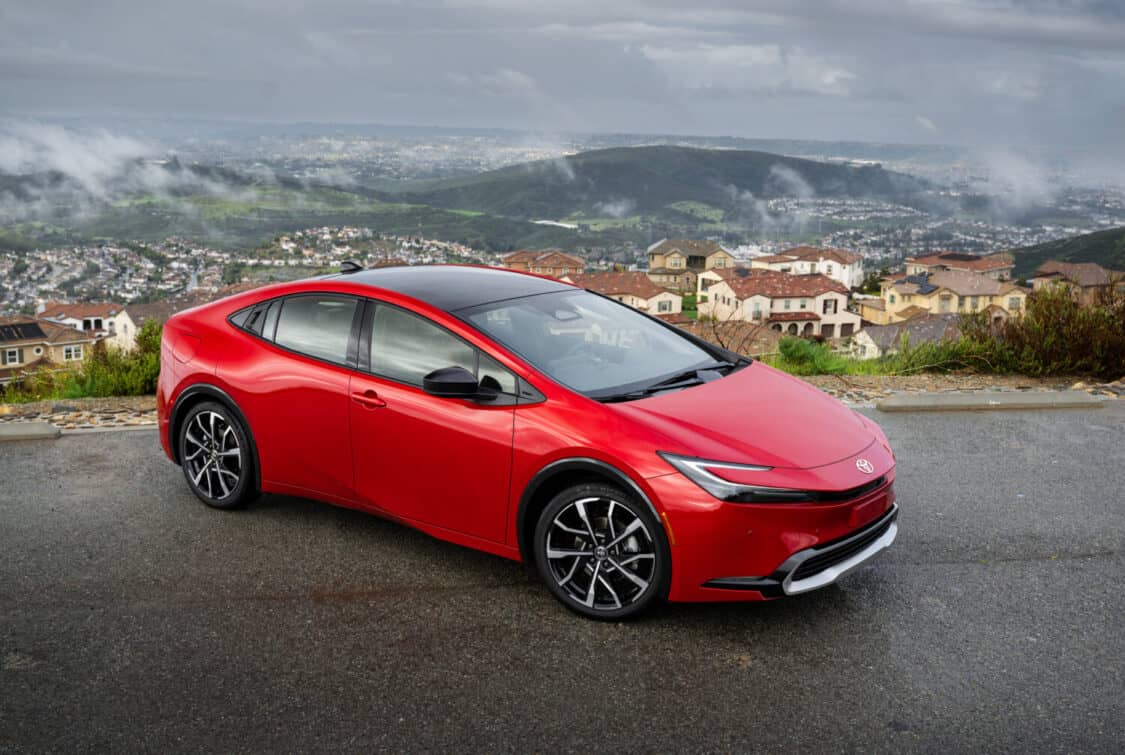
In January 2023, Toyota’s Akio Toyoda, president and CEO at the time, stepped down. The company’s investors were critical of him for not moving fast enough into producing EVs. New CEO Koji Sato of the Lexus division took over for Toyoda.
In a horrifying development for EV advocates, Akio Toyoda recently made the bold and shocking statement that he does not see battery electric vehicles ever reaching more than 30% market share, causing great controversy. The remaining 70%, Toyoda said, would be hybrids and hydrogen fuel-cell vehicles, with internal-combustion engine (ICE) vehicles remaining part of the remaining 70% indefinitely.
Since Toyoda stepped down, the company has surprised the EV industry by making bold moves into electrification. In December 2023, Toyota announced its plans to launch 30 new electric vehicles across its Toyota and Lexus brands by 2030.
ADVERTISEMENT
Toyota Hybrid and Electric Models: A Quick Breakdown
Hybrids
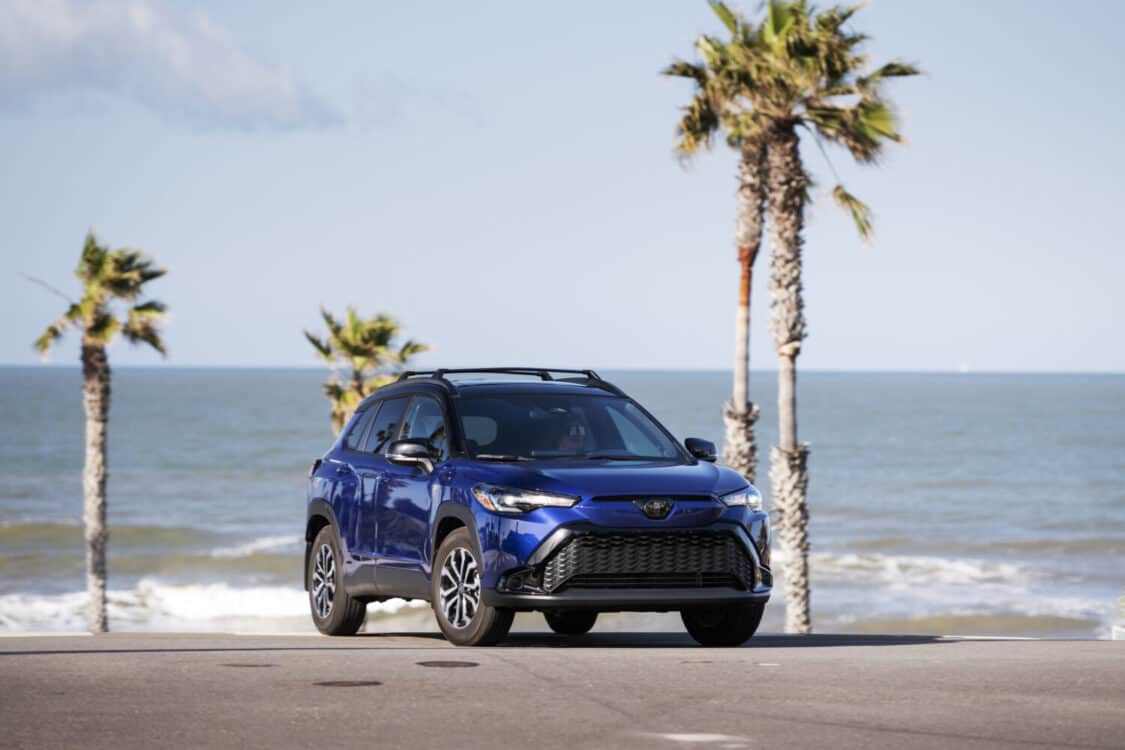
Toyota has hybrid cars, which are gas-powered and cannot be plugged in to recharge. The gas engine recharges the battery, and the battery also gains energy from regenerative braking. This gives hybrids better gas mileage than traditional ICE vehicles. Hybrids are unpopular among some environmental advocates since they are the second-highest in emissions after ICE vehicles.
Some Toyota hybrid cars include the Camry Hybrid, Corolla Hybrid, Corolla Cross Hybrid SUV, and Highlander Hybrid SUV.
Plug-In Hybrids
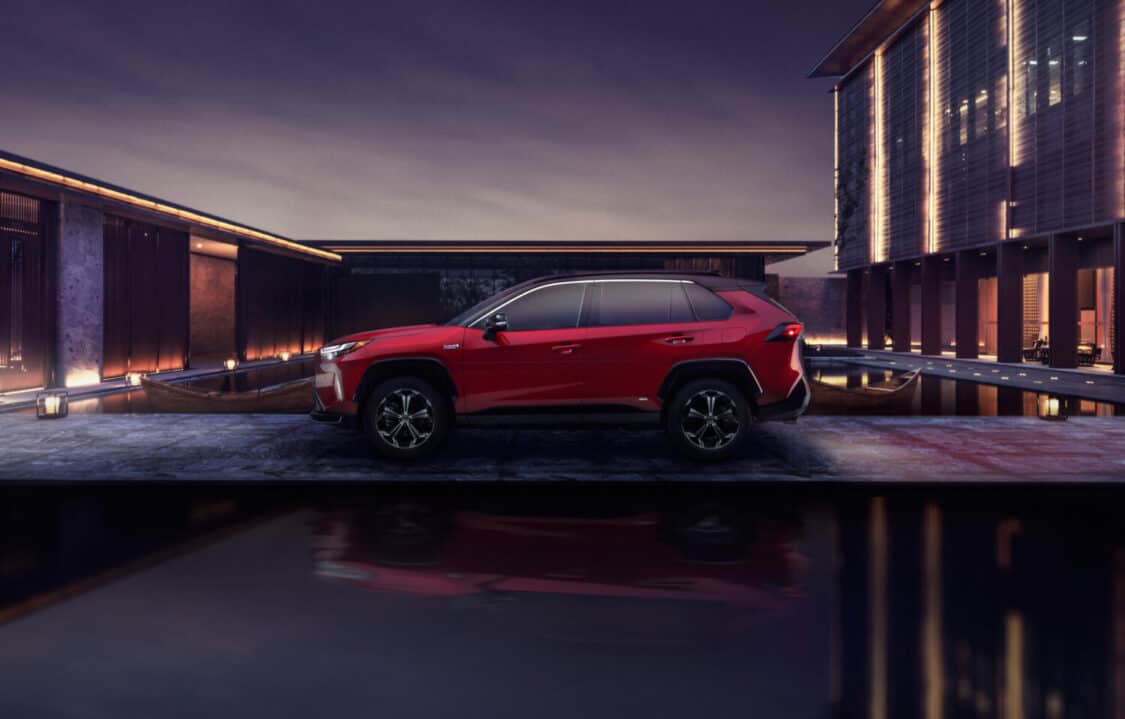
PHEVs are the best choice if you’re considering a hybrid (as the most eco-friendly and economical type of hybrid) due to electricity being cheaper than gas. They’re still needed because of the current struggles in the U.S. with EV charging, and some drivers are just not ready for BEVs. Many areas don’t have enough public charging, and many multifamily residents (roughly one-third of Americans) can’t charge at home. Plug-in hybrids offer a bridge to electrification for these drivers.
Some Toyota plug-in hybrid models are the Prius Prime PHEV and RAV4 Prime PHEV SUV.
Battery-Electric Vehicles
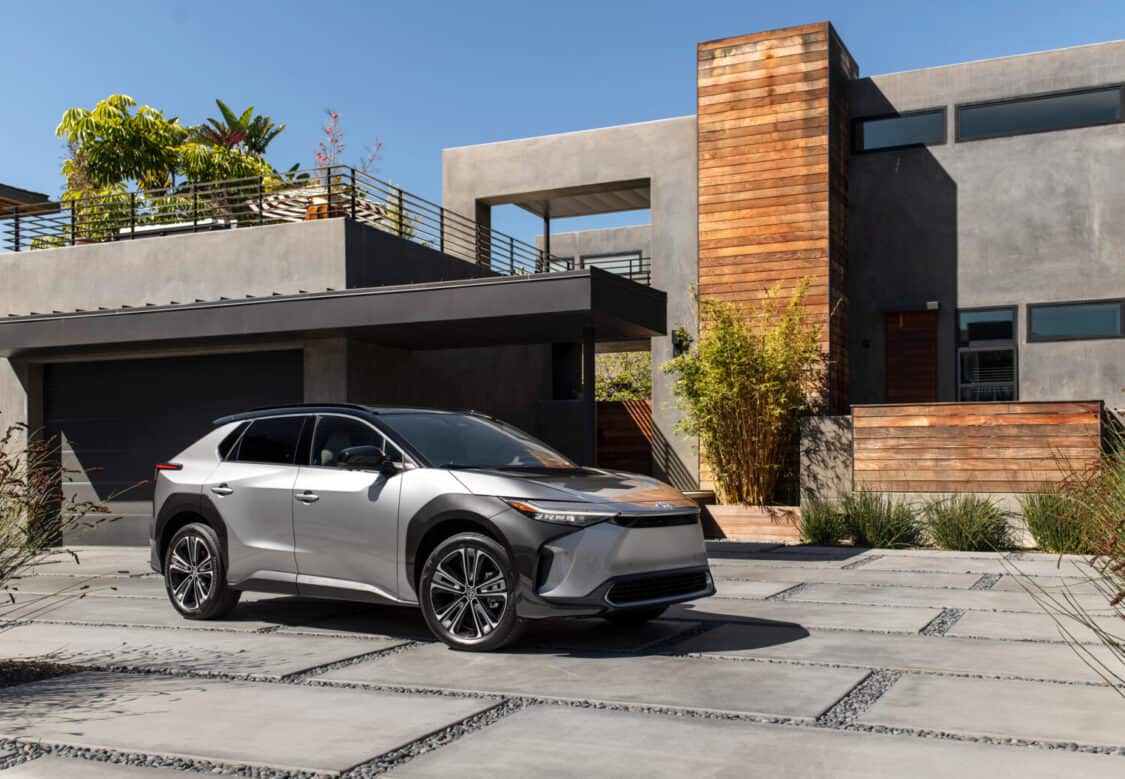
BEVs are the best environmental choice. However, because charging can be difficult for many drivers, many drivers are choosing PHEVs instead. While it would be better for the environment for everyone to go full BEV immediately, in reality, it is just not possible at the moment. As EV charging grows quickly across the U.S., BEVs will become more prevalent.
Toyota offers only one BEV at present: the bZ4X.
ADVERTISEMENT
Toyota’s Electrified Vehicle Plans
Toyota’s slow move into BEVs is changing into a stronger commitment to BEVs, with Akio Toyoda becoming less influential in the company. The brand’s sole BEV, the bZ4X, will be joined by more BEV models. Toyota has benefitted from offering a variety of hybrid cars and PHEVs, as shown in the strong sales numbers of these models in 2023. It is expected to keep production levels of Toyota plug-in hybrids high through 2024. This is good news for American drivers who are having trouble finding charging and opting for PHEVs instead of BEVs.
In February 2024, Toyota announced a $1.3 billion investment at its flagship Kentucky facility in the U.S. The investment prepares Toyota for its planned production in 2025 of a new battery-electric SUV tailored for U.S. drivers. Toyota’s new BEV SUV will use batteries from Toyota North Carolina in order to qualify for the full U.S. tax credit.
Since 2021, Toyota Motor North America has announced investments of nearly $16 billion into U.S. manufacturing operations to support electrification efforts. Toyota employs over 49,000 people in the U.S., and has been a part of the U.S. auto market for over 65 years. The company offers its Toyota and Lexus brands at nearly 1,500 dealerships.
Environmental Activists Prefer BEVs, Are Critical of Toyota’s Push for Hybrid Cars
The reason environmental activists prefer BEVs over hybrids or plug-in hybrids is that electric vehicles offer the most significant reductions in emissions over gasoline.
CNN reported that, according to the Department of Energy’s Alternative Fuels Data Center, the U.S. national average annual emissions per vehicle, in metric tons of carbon dioxide equivalent (CO2e) are:
- BEV: 1.24
- PHEV: 2.16
- Hybrid: 3.13
- ICE: 5.71
ADVERTISEMENT
This data is the U.S. national average for light-duty vehicles. It excludes fuel-cell electric hydrogen vehicles and excludes emissions related to vehicle production, which are the highest for EVs.
ICE cars, hybrids, and EVs all emit about the same amount of pollution during manufacturing until it comes to the battery. A popular study shows EVs as 40% dirtier to produce.
EV critics point to battery production as proof that EVs are not eco-friendly. However, the life cycle of the car needs to be taken into account. During the lifetime of a car, including the production of it, ICE vehicles pollute the most. Therefore, EVs are the most eco-friendly vehicles because EVs have zero emissions during their on-road service.
Toyota has been widely criticized by EV advocates for Akio Toyoda’s anti-BEV behavior and the company’s slow movement into the BEV market.
Toyota EV Strategy
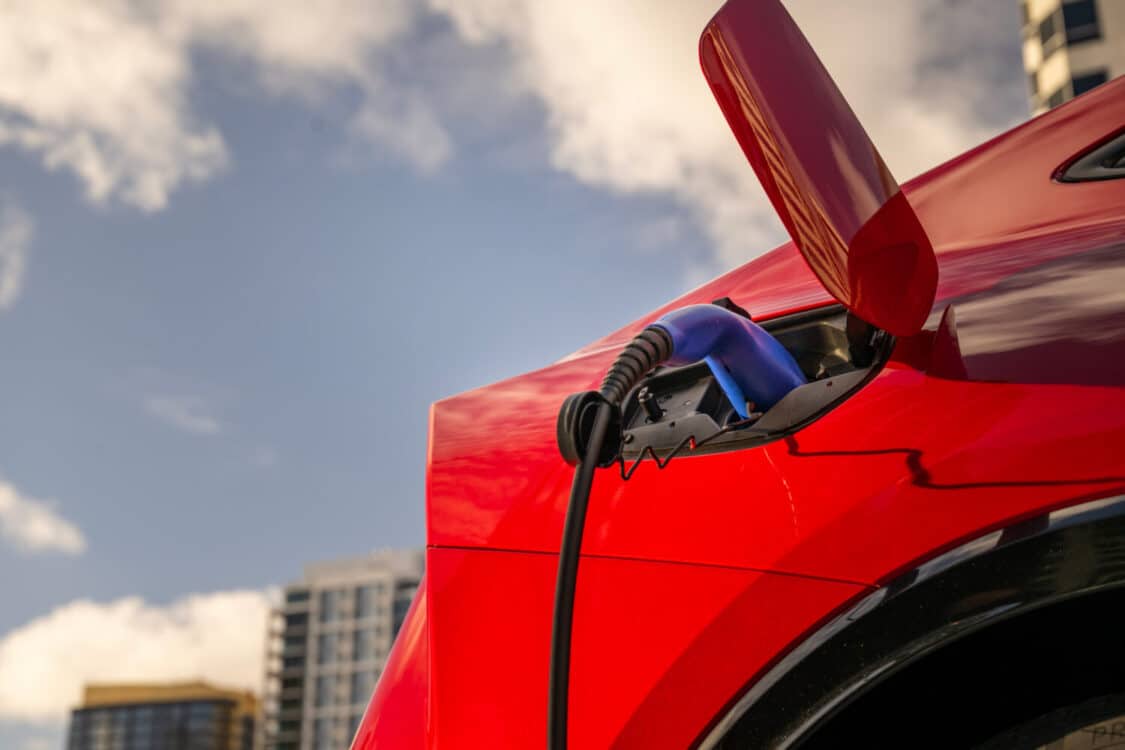
It appears that the company has recently changed its ways and is now moving to make a stronger commitment to electrification. Toyota has gained from the rising popularity of PHEVs, which are bridging the gap for American drivers who want to drive fully electric but are currently unable to. These drivers face problems primarily with charging availability due to chargers not being available in their area or at home.
As the EV charging industry grows, the need for hybrids and PHEVs will decrease proportionally. One hopes that this happens sooner than later. The federal government is commended for releasing the $5 billion NEVI Formula Program outlined in the $1.2 trillion Infrastructure Investment and Jobs Act. NEVI is building public EV charging throughout the U.S. and released an update on impressive progress in Q1 2024.
ADVERTISEMENT

IMAGES: TOYOTA
FTC: We use income-earning auto affiliate links. Learn more.


